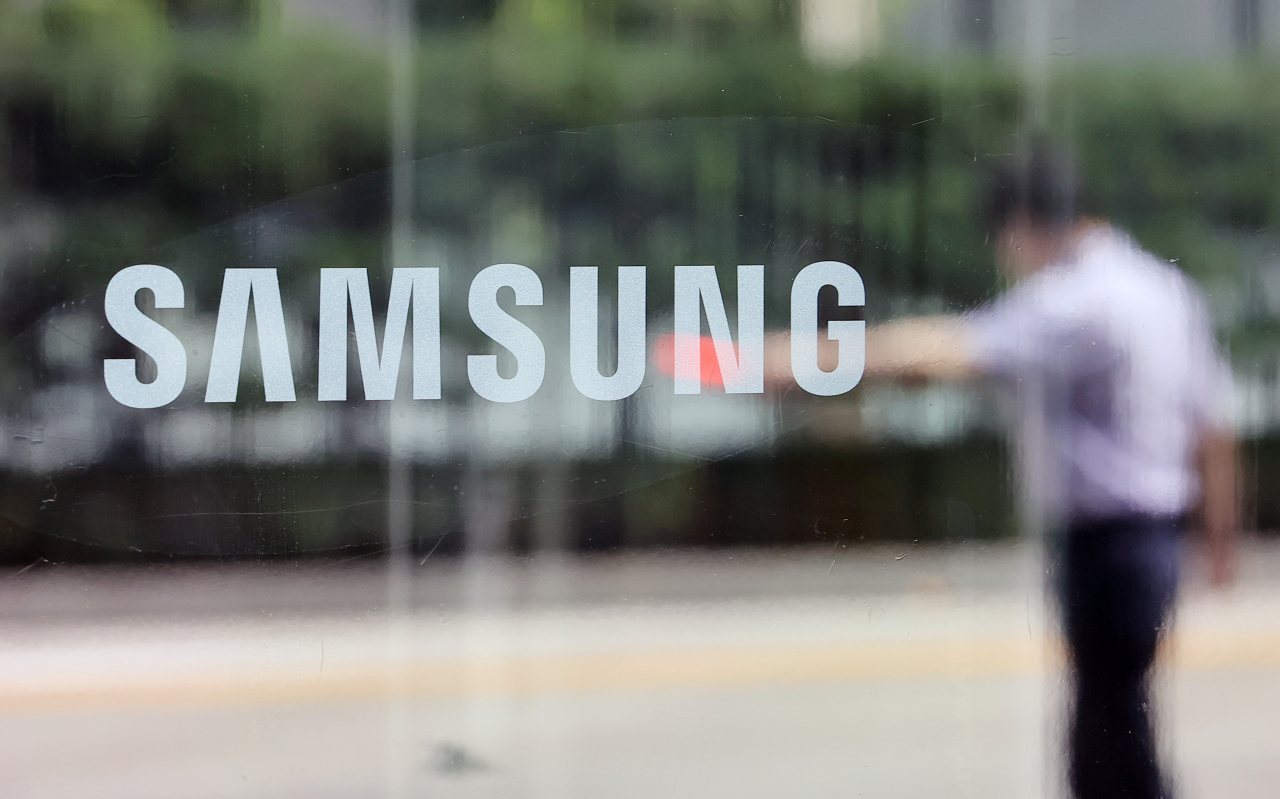Samsung logs W4.3tr profit loss in chips, predicts recovery in H2
Chip giant says it will further slash memory chip production to adjust market inventory, strengthen AI-related chips
By Jo He-rimPublished : July 27, 2023 - 15:49

Samsung Electronics, the world’s largest memory chip maker, said Thursday it will further slash memory chip production and gear up to respond to the rising demand for artificial intelligence-related chips, as its chip business reported a consecutive drop in operating profit for the second quarter this year.
In a regulatory filing, Samsung reported it achieved 60 trillion won ($47.1 billion) in consolidated revenue in the April-June period, down 6 percent from the previous quarter and 22.3 percent on-year. The company’s operating profit stood at 660 billion won, plunging 95.3 percent on-year.
Samsung attributed the decline in sales to decreased smartphone shipments in the second quarter, though its device solutions division in charge of the company’s semiconductor business witnessed a slight recovery in sales.
“We expect global IT demand in the business environment to recover gradually, driving improved results, especially in our component businesses. However, challenges associated with a demand recovery are also likely to persist due to macro risks and other factors for the DS division, amid expectations of a gradual recovery in demand,” Suh Byung-hoon, executive vice president in charge of investor relations, said in an earnings call for the second quarter.
As its device solutions division logged an operating loss of 4.3 trillion won for the second quarter, sales stood at 14.7 trillion won in revenue.
The company said it was able to narrow the loss from the previous quarter by setting its focus on strengthening High Bandwidth Memory and DDR5 products, in anticipation of robust demand for AI applications. This led to higher-than-guided DRAM shipments.
System semiconductors posted a decline in profit due to lower utilization rates on weak demand from major applications, the chipmaker added.
Samsung anticipated the memory market to recover in the second half of this year.
"We think that in the second half, there will be improvement in demand versus the first half especially around PC and mobile that have relatively made more progress in terms of set level inventory adjustments," the company said.
"In the second half of this year, we will continue to adjust our production for both DRAM and NAND."
Samsung said its chip business will focus on sales of high-value-added products such as DDR5, LPDDR5x and HBM, amid expectations of a recovery in demand, while also enhancing the completeness of the Gate-All-Around process.
Samsung Display, the mobile panel affiliate of Samsung, witnessed its earnings post 6.48 trillion won in the second quarter and an operating profit of 840 billion won, maintaining a similar level to the previous quarter. The company said its earnings result has been backed with solid sales of premium panels, while the large panel business continued to focus on QD-OLEDs in the premium market.
Regarding patent infringement litigation the display maker faces with Chinese rival BOE both in the US and China, the company explained it filed the suit as infringement activity by the rival had "gone beyond what we could tolerate."
"We were the first to pioneer the OLED market and we have spearheaded this into a huge industry ... we invested huge amounts of time, human, as well as financial, resources. And therefore this IP needs to be thoroughly protected as a company's valuable asset through patent registration," said Choi Kwon-young, executive vice president at Samsung Display.
"Patent infringement is not just an issue in terms of harming the competitiveness of an individual company, but it undermines the rules of competition and eventually the entire industry ecosystem."
Samsung's device experience division in charge of mobile device and gadgets, achieved an operating profit of 3.04 trillion won, while the consumer appliances and TV division recorded an operating profit of 740 billion won. The strong profitability was backed with higher sales of premium TVs and digital appliances, an improved cost structure and increased operational efficiency, Samsung said. The networks business’s revenue declined in major overseas markets including North America and Japan.
Samsung unveiled its new Galaxy foldable smartphone series in Seoul on Wednesday.
Harman, Samsung’s audio and automotive component subsidiary, also achieved 3.5 trillion won in sales, up 17 percent on-year. The operating profit jumped 150 percent to mark 250 billion won. The tech giant said the growth was led by demand for consumer audio, such as portable and True Wireless Stereo products. Harman also won the largest automotive order in its history in the quarter.
While earnings are improving at a slow pace, the tech giant kept up its in investment. Samsung said its total capital expenditure in the second quarter was 14.5 trillion won, which is the largest amount for a second quarter, with 7.2 trillion won also devoted to research and development.
The company said it spent 13.5 trillion won for semiconductors and 600 billion won for displays. The investment concentrated on completing infrastructure construction for P3 and P4 chips, and also for its foundry fabs in Taylor, Texas, and Pyeongtaek, Gyeonggi Province, aimed to address demand for advanced nodes, the company said. Investment in displays focused on infrastructure and module production enhancements.





![[Weekender] How DDP emerged as an icon of Seoul](http://res.heraldm.com/phpwas/restmb_idxmake.php?idx=644&simg=/content/image/2024/04/25/20240425050915_0.jpg&u=)



![[Music in drama] An ode to childhood trauma](http://res.heraldm.com/phpwas/restmb_idxmake.php?idx=644&simg=/content/image/2024/04/25/20240425050929_0.jpg&u=)








![[Herald Interview] Mistakes turn into blessings in street performance, director says](http://res.heraldm.com/phpwas/restmb_idxmake.php?idx=652&simg=/content/image/2024/04/28/20240428050150_0.jpg&u=20240428174656)
